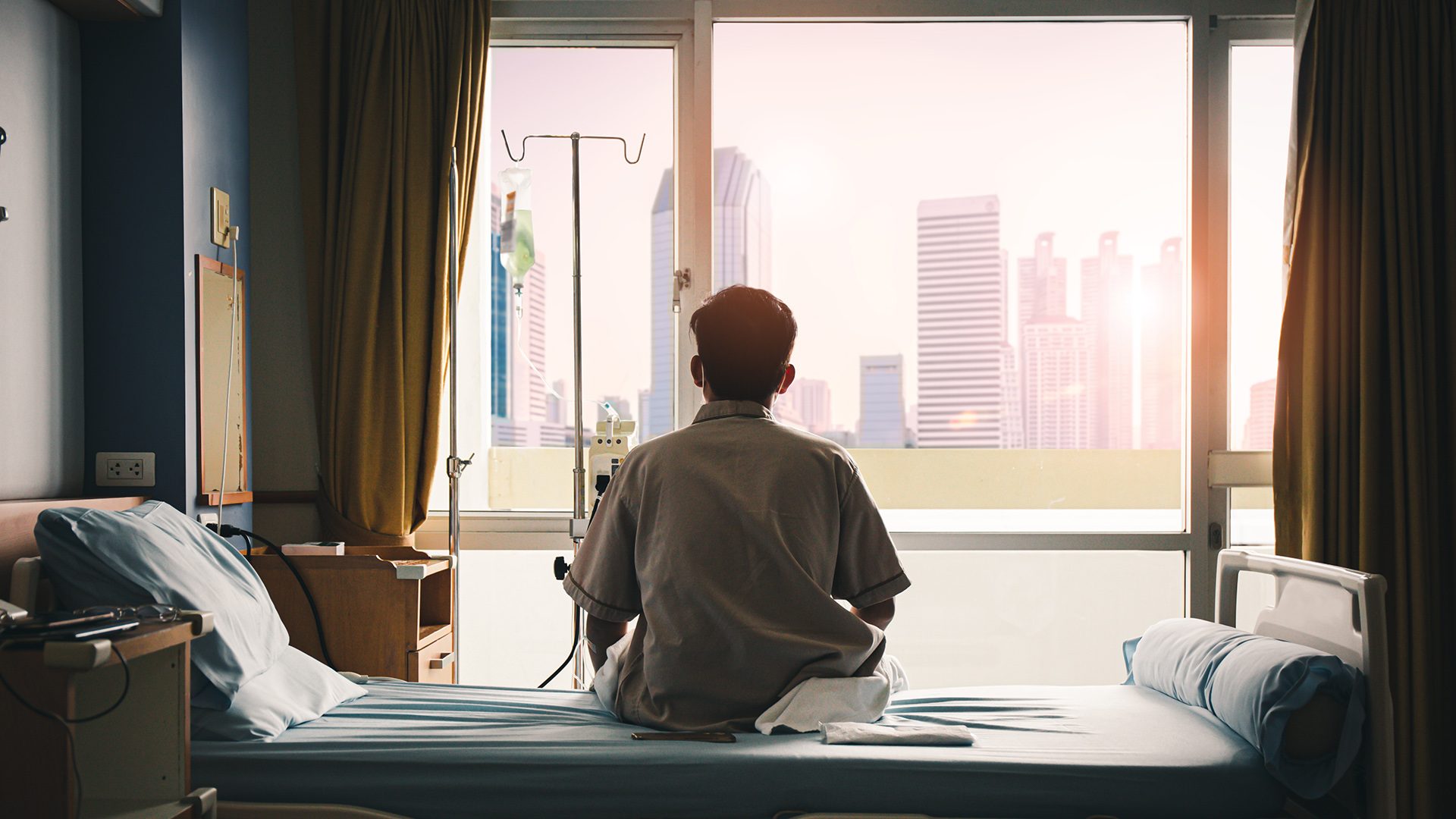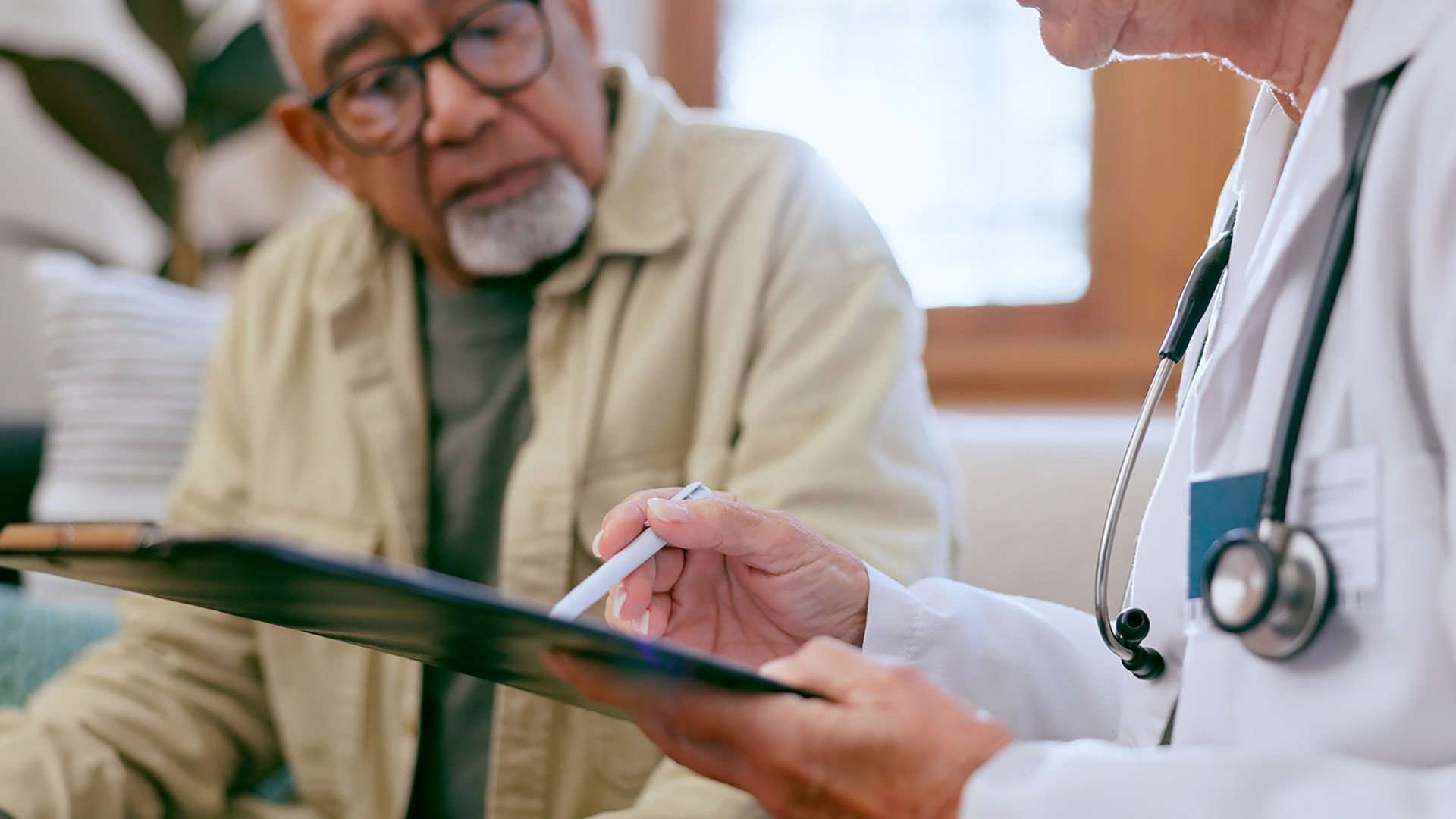Emotions After Cancer Treatment
After treatment is done, you can experience a mix of reactions. Often the emotions are positive. You may have discovered new personal strength and deepened relationships with loved ones during treatment. Your friends and family are happy for you and want you to return to life as it was before cancer.

But there can also be feelings that aren’t positive. Some describe the period after cancer treatment as one of the most emotional times of their lives. This can be confusing. Most cancer patients are not surprised by strong emotions during treatment. However, they can be surprised when new or old emotions occur after treatment is completed. Understanding these feelings can help you manage them.
What to Expect After Treatment
When cancer treatment ends, you may feel excited about the future. There’s relief that treatment is over. Some survivors report a sense of gratitude and renewed wonder about life. Others describe a deepened closeness to loved ones and friends. Often there is a desire to meet new goals and get the most out of life.
However, it can be a surprise to also discover uncomfortable feelings and unanswered questions. You have more time to think about things than you did during treatment. You may feel angry about having had cancer. Some survivors begin to worry about the unknowns of the future. Some feel concerned that they’re no longer receiving treatment to get rid of cancer cells. There can be financial concerns or regrets about having had to rely on others for help and support.
Loved ones, friends and your health care team may be ready to celebrate your victory over cancer. It can seem as if others don’t understand the emotional stress you’re under. Dealing with difficult feelings when those close to you are celebrating your success can be confusing. Talk with them about how you are feeling and help them better understand your experience.
Below are some common emotions that can occur after treatment and ways to deal with them. If you experience any of these, talk to those close to you and to your health care team. If needed, ask for a referral to a licensed social worker or counselor to help you deal with your emotions. You don’t have to go through it alone.
Feelings of Worry
- Fear of recurrence: It’s common for survivors to feel fearful that cancer could come back. Talk with your health care provider about your concerns. Schedule regular follow-up health care and screenings.
- Anxiety: Some survivors experience worry or anxiety right after treatment ends. You may have concerns about how cancer could affect your future.
- Concerns about physical appearance: Physical changes during treatment may bring concerns about the way you look. There may be worries about what others might think. There can be a change in how you see yourself.
Feelings of Sorrow
- Sadness: Sadness is a very common response after treatment ends. This is often the time when cancer survivors have time to think about the changes that have happened. It is normal for survivors to feel sad as they adjust to the changes that have occurred. However, sadness should not last for a long time.
- Depression: Change and loss can result in stress that begins to feel overwhelming. Long-term stressful situations can bring depression. So can sadness that goes on for too long. Depression is a serious condition. It can be caused by or made worse by chemical changes in the brain. People who are depressed may need medical treatment to get better. Treatment can include medication and counseling.
- Grief: Grief is a natural response to loss that can last for quite some time. It generally comes with losing someone or something that has been important to you. In addition to a deep sadness, the grieving process may also include stages of denial and anger before one is able to reach a full acceptance of the loss. Many cancer survivors find comfort in talking with someone they trust such as a loved one, friend or faith-based counselor. A support group, licensed social worker or counselor can also help survivors and their loved ones deal with loss and grief that does not go away.
- Guilt: Some survivors have feelings of guilt following completion of cancer treatment. Guilt comes from thinking that you are to blame for something. Some may think that they did something that caused the cancer. Others might feel guilt because they survived while others did not. Still others may worry that too much of a burden was placed on loved ones. Whatever the cause, guilt is a complicated emotion. Cancer survivors do not need to carry the burden of guilt. If you have these feelings, start by acknowledging them. This can be the first step towards letting guilt go.
Feelings of Confusion
- Uncertainty: Cancer can leave you feeling unsure about the future condition of your health. Most cancer survivors live with some feelings of uncertainty. For example, you may feel nervous before medical follow-up appointments. An important date, such as the date of diagnosis or the date you completed treatment, might bring these feelings out. Ask your health care provider to help you develop a follow-up health care plan. A care plan may lessen feelings of uncertainty and help you know what to expect. Some survivors find that staying focused on the present is helpful. Living this way can help you avoid worrying about things that may never happen.
- Anger: Anger can range from mild irritation or frustration to rage. Some survivors may feel angry about how cancer affected their lives. They might have new physical, financial or emotional challenges. A certain amount of anger is normal. Yet some survivors may need help to get past strong feelings of anger.
- Emotional numbness: The cancer experience can leave you feeling numb or without feelings. After the stress of treatment, you may feel unable to take on anything more. Some survivors protect themselves by shutting down their feelings for a while. If you find yourself thinking that you no longer care, you may be experiencing emotional numbness.
- Spiritual distress: A belief system that helps you make sense out of the experiences of life is important to your well-being. A new search for meaning can begin when cancer is diagnosed. It may continue for many years after cancer treatment is over. Spiritual distress can begin if life becomes very different from the way you thought it would be or should be. Some survivors may redefine values and goals during such a time. A search for what now gives life quality and meaning can take place. Talking with a loved one, clergyperson or hospital chaplain can be helpful as you go through this process.
Tell Your Health Care Provider About Signs of Depression
- Long-lasting changes in eating habits (not wanting to eat or eating too much).
- Loss of interest in activities you usually enjoy.
- Crying spells.
- Fatigue or problems sleeping.
- Feelings of hopelessness, helplessness or despair.
- Inability to experience joy.
- Problems with concentration.
- Suicidal feelings.
- Unexpected changes in weight (loss or gain).
Adjusting to Emotions Takes Time
Some survivors need help adjusting to strong emotions after they complete cancer treatment. Each person will react in his or her own way. In time, it generally becomes easier to deal with emotions. Other life events may begin to require more attention. Often, less time needs to be focused on the cancer experience. This can help one adjust more quickly.

